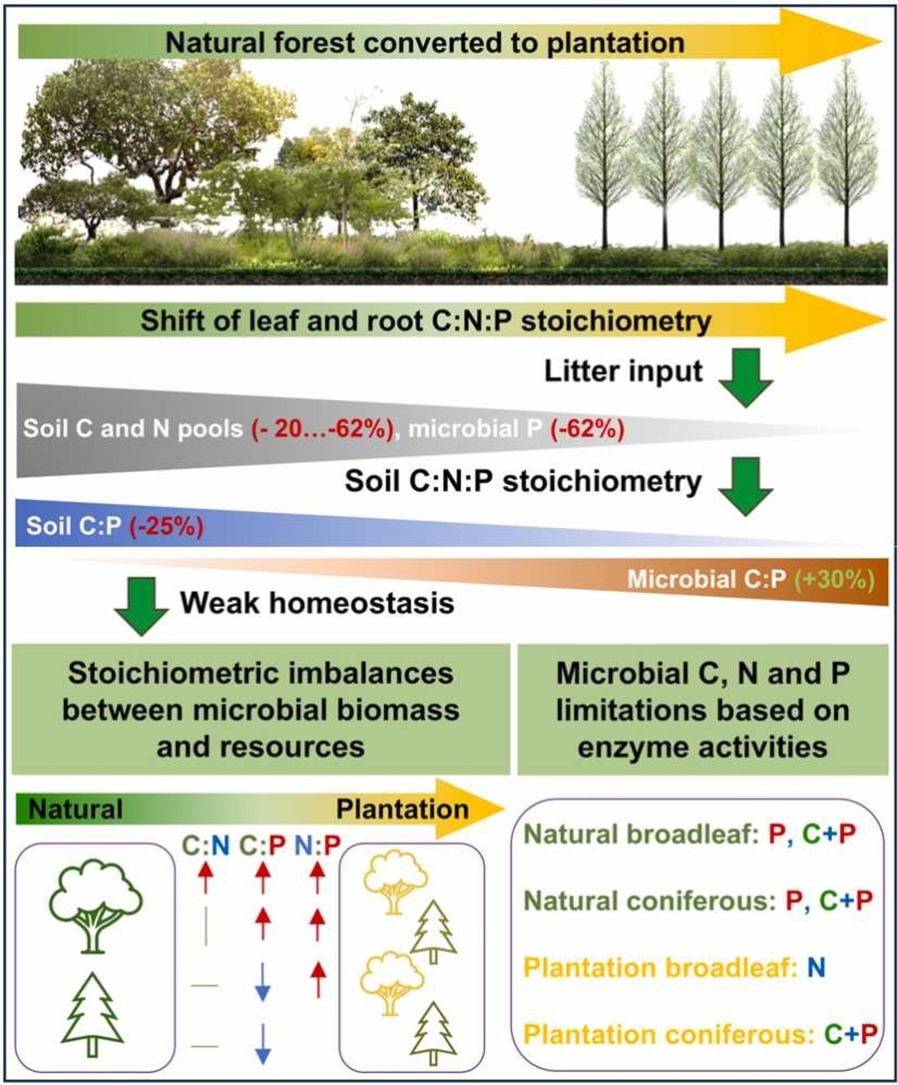
Newsroom
The global expansion of plantation forests is disrupting fundamental ecosystem functions by altering nutrient cycling in soils. As forests transition from diverse natural ecosystems to monocultures of planted trees, the balance of essential elements—carbon (C), nitrogen (N), and phosphorus (P)—is being systematically reconfigured, according to new study published in Forest Ecology and Management.
Researchers led by Dr. SUN Tao from the Institute of Applied Ecology of the Chinese Academy of Sciences conducted a comprehensive meta-analysis of 126 peer-reviewed studies across various biomes and climate zones. They found that forest conversion affects the chemical composition of leaf litter, soil, and microbial communities in interconnected ways, introducing new feedback loops into terrestrial nutrient cycles.
While the C:N:P ratio in bulk soil organic matter remained relatively stable, indicating stoichiometric homeostasis, microbial biomass and enzyme activity exhibited greater sensitivity to changes in litter quality. These results suggest that belowground biological processes may be less resilient to environmental shifts than previously thought.
One key insight from the study is that litter quality, particularly the nutrient content of fallen leaves and roots, plays a decisive role in driving imbalances in ecosystem element ratios.
Microbial communities regulate decomposition and nutrient turnover and respond to these inputs by adjusting in their own internal C:N:P ratios. Unlike the soil pool, which exhibited stabilizing feedback, microbial systems demonstrated weaker stoichiometric stability. Under altered resource conditions, enzyme activities and microbial C:P ratios diverged.
The researchers identified the key environmental and biological factors that drive these patterns. Soil pH and climate variables such as temperature and precipitation primarily influenced the soil's C:N ratio, while plant traits—particularly leaf and root C:N, N:P, and C:P ratios—were the dominant factors affecting microbial and enzymatic responses.
Crucially, the study shows that shifting to plantation forests changes the interactions between decomposer organisms and available resources, creating a new dynamic balance in nutrient cycling. This reorganization can have lasting implications for soil fertility, carbon storage, and the long-term ecological stability of planted forests.
The study offers practical recommendations for improving nutrient management in plantation systems. Land managers could improve nutrient availability and microbial efficiency by incorporating broad-leaved species with nitrogen-fixing abilities or species that form mycorrhizal associations, such as arbuscular mycorrhizal (AM) or ectomycorrhizal (ECM) fungi, thus enhancing ecosystem resilience.

Impact of forest conversion on the stoichiometry of plants, soils, and microbial communities (Image by WANG Ying)
